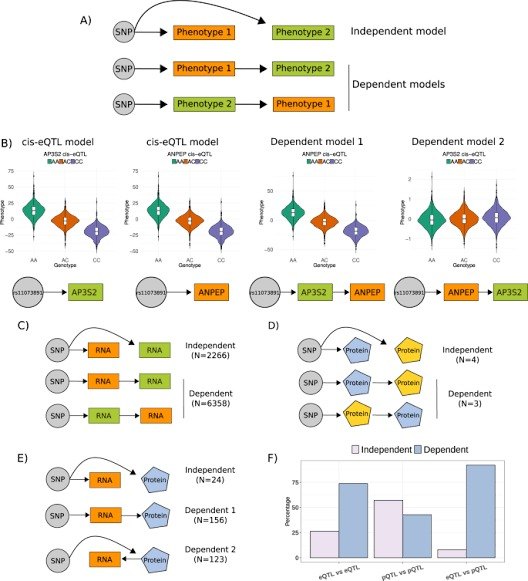Understand How Your Genes Affect Nutrition
Your genes play an important role in how well your body absorbs and utilizes key nutrition from your diet. Eating well isn’t just about choosing nutritious foods it’s also about understanding your unique genetic makeup and needs.
Getting adequate vitamins, minerals, and nutrients allows your body to grow, repair itself, and function optimally. But what happens if you don’t get enough of what your body needs?
Nutrition Deficiencies Can Lead to Health Issues, Due to differences in our DNA, we all metabolize vitamins, minerals, and other essential nutrients differently. What works for one person’s body may not work as well for another’s.
If you don’t get enough nutrients, you may develop deficiencies. Nutrition deficiencies occur when your body lacks certain nutrients and can lead to health issues such as:
- Weight gain
- Vision problems
- Fatigue
- Heart disease
- Mood changes
- Skin conditions
- Digestive problems
- Lowered immunity
- Brittle bones and joints
Eating a balanced diet tailored to your genetic profile can help prevent nutrition deficiencies and promote optimal health.
The Genetics
Our genes hold clues about how our bodies process and benefit from vitamins and minerals. Here are some of the key genes influencing these interactions included in this test:
Vitamin A – The BCO1 gene impacts how vitamin A gets activated in your body. Different variants of this gene may affect how much usable vitamin A is available.
Vitamin B6 – The NBPF3 gene regulates how quickly vitamin B6 is removed from your body. Some variants speed up vitamin B6 clearance, so you may require more of it.
Vitamin B12 – The FUT2 gene influences how well vitamin B12 is absorbed. Some variants may impact how much vitamin B12 you take in.
Vitamin C – The SLC23A1 gene controls the absorption and distribution of vitamin C in your body. Some variants may disrupt how well vitamin C is retained and transported.
Vitamin D – The CYP2R1 gene alters the activation of vitamin D, and the GC gene alters vitamin D uptake and transport.
Vitamin E – The APOA5 gene regulates vitamin E blood concentrations. Some variants lead to lower circulating vitamin E.
Folate – The MTHFD1 and MTHFR genes play roles in folate utilization and activation. Some variants lower usable folate, despite adequate intake.
Iron – The TF and TMPRSS6 genes influence iron absorption and transport. Some variants reduce iron uptake from food.
Omega-3 – The NOS3 gene impacts triglyceride response to omega-3. Some variants weaken the triglyceride-lowering effects.
Personalized Nutrition for Your Unique DNA
This nutrition DNA test provides insights into how your unique genetics influence key vitamin and mineral processing. The results will cover:
Vitamin A: Essential for vision, immune function, skin health, bone growth, and reproduction.
Vitamin B6: Helps process carbs, supports brain development, immunity, skin health, and red blood cell formation.
Vitamin B12: Critical for brain and nerve function, making DNA, and breaking down fats and proteins.
Vitamin C: Important for making collagen, boosting immunity, wound healing, absorbing iron, and removing toxins.
Vitamin D: Supports cell growth, immunity, reducing inflammation, and bone health.
Vitamin E: Boosts immunity and is vital for eye and skin health.
Folate: Promotes proper growth and helps break down some amino acids.
Iron: Makes hemoglobin, which carries oxygen throughout the body.
Omega-3: Key fatty acid that supports metabolism and overall health.
There is no “one size fits all” approach when it comes to diet and supplements. Your genetics play a role in how well you absorb and utilize nutrients. A quick mouth swab DNA test provides insights into your unique nutritional needs and requirements.
What Does Genetic Testing Look for?
Genetic testing looks for changes in your genes, chromosomes, and proteins. DNA tests can give you lots of information about the genes that make up who you are. They can confirm if you have or don’t have a specific disease. They can determine if you have a higher risk of developing certain conditions. And they can find out if you carry a specific mutated gene that you can pass to your child.
What are the different types of DNA tests? The various types of genetic tests include tests that look at:
Genes: Gene tests analyze your DNA to find changes (mutations) in your genes that can cause or increase your risk of developing a genetic disorder. Gene tests may study one gene, a few genes, or all your DNA. Looking at all your DNA is called genomic testing.
Chromosomes: Chromosomal tests study your chromosomes or long strings of your DNA. They look for changes in the order of genes that could be the cause of a genetic condition. One example of the changes looked for is an extra copy of a chromosome.
Proteins: Protein tests analyze the enzyme activity in cells, looking for the products of chemical reactions in our cells. Problems with your proteins can mean you have changes in your DNA that can cause a genetic condition.

Diagnostic testing
Diagnostic testing can confirm or rule out specific genetic diseases or chromosomal problems. But it doesn’t test for all genetic conditions. Diagnostic genetic testing is often used during pregnancy, but it can be used at any time to confirm a diagnosis if you have symptoms of a certain disease.
Carrier testing
If a condition is autosome recessive, it means that someone can carry a gene for that condition but not have symptoms. Carrier testing can tell you if you carry a copy of a mutated gene for an autosomal recessive disease. This is generally done because one parent’s family has a history of a disease that is passed on in an autosomal recessive way, which means that it takes a copy of the gene from each parent. So if one parent knows they carry an autosomal recessive gene, the other should be tested so they know the risk of passing that disease to their kids.
Preimplantation testing
Preimplantation testing can find genetic mutations in the embryos that were made using assisted reproductive techniques (ART), like in-vitro fertilization (IVF). A small number of cells are taken from your embryos and tested for certain mutations. Only embryos without these mutations are implanted in your uterus to attempt to start a pregnancy.
Newborn screening
Your newborn will be tested two days after they’re born. A newborn screening tests for certain genetic, metabolic, or hormone-related conditions. Newborns are screened immediately after birth so treatment can start right away if needed. States decide which diseases to screen for, but in the United States, hospitals can screen for more than 35 conditions in newborns.
Predictive and presymptomatic testing
Gene mutations that increase your likelihood of developing a genetic condition later in life can sometimes be detected through predictive and pre-symptomatic testing by looking for changes in your genes that increase your risk of developing certain diseases. These include certain types of cancer such as breast cancer. Presymptomatic testing can tell whether you’ll develop a genetic disorder before you’ve developed any symptoms, but not with 100% certainty. There is always a chance for errors when this type of testing is done, so speak with your provider about this before you do it
Nutrition Plan
A nutrition plan based on genetic testing can help tailor your diet to your unique genetic makeup, optimizing health and performance. Genetic testing can reveal how your body processes nutrients, metabolizes fats and carbs, and responds to certain foods. Here’s a brief guide on how to build a nutrition plan around genetic testing results:
1. Macronutrient Breakdown: Genetic tests can provide insights into how you metabolize fats, proteins, and carbohydrates. For example, if you have a genetic predisposition to struggle with processing fats, your plan might include a lower-fat diet. Conversely, if your body efficiently processes carbohydrates, you may tolerate higher-carb foods better.
2. Micronutrient Needs: Some genetic markers influence how well you absorb vitamins and minerals like vitamin D, folate, and iron. If testing reveals deficiencies or reduced absorption, you can focus on incorporating nutrient-rich foods or supplements as needed.
3. Food Sensitivities: Genetic testing can identify intolerances, such as lactose or gluten sensitivities, which can be addressed by eliminating or reducing certain foods in your diet.
4. Exercise and Performance: Certain genes affect your ability to build muscle or endurance. This can guide your nutrition for athletic performance, including the timing of protein intake or carbohydrate loading.
5. Weight Management: Some genetic markers influence how your body stores fat or burns calories. A customized plan could optimize your macronutrient ratios for weight management based on these findings.
6. Long-term Health: Your genetic profile can also give insights into potential risks for conditions like heart disease or diabetes. A diet rich in antioxidants, anti-inflammatory foods, and heart-healthy fats could be recommended if your genes indicate a higher risk for such conditions.
Overall, a nutrition plan based on genetic testing ensures that your diet aligns with your body’s unique needs, maximizing health benefits and minimizing risks.
Some Supplements Recommendations
Supplement recommendations based on genetic testing are tailored to address specific genetic variations that affect nutrient absorption, metabolism, and overall health. For example, individuals with genetic variations that impair vitamin D absorption might be advised to take vitamin D supplements, as their bodies may not efficiently process sunlight into the active form of vitamin D. Similarly, those with genetic predispositions that affect the metabolism of omega-3 fatty acids may benefit from fish oil or flaxseed oil supplements to support heart and brain health.
Vitamin B12 is another common supplement recommendation, especially for individuals with genetic variations that reduce their ability to absorb B12 from food sources. People with these variations may require higher doses of B12 through supplementation, especially if they follow vegetarian or vegan diets.
Iron supplements might be recommended for individuals with genetic predispositions to lower iron absorption, as iron is vital for oxygen transport in the blood and energy production. Genetic testing can also reveal predispositions for higher oxidative stress, making antioxidants like vitamin C or E beneficial for managing cellular damage.
By identifying genetic markers related to nutrient needs and deficiencies, personalized supplement recommendations can help optimize health outcomes, support metabolic processes, and prevent long-term deficiencies or conditions.

